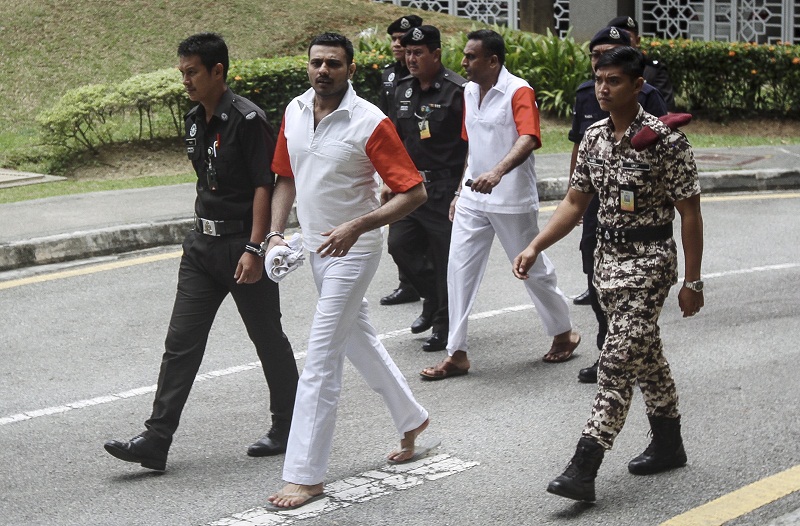KUALA LUMPUR, March 26 — The Federal Court’s recent decision to uphold the conviction of a lawyer and two others for the murder nearly seven years ago of cosmetics millionaire Datuk Sosilawati Lawiya and her three friends brings to a closure one of the most brutal crimes committed in the nation in the past decades.
On that tragic day, Sosilawati, then a leading icon in the multi-million local cosmetics industry, had gone to meet up with her lawyer, accompanied by three others, at his farm in Banting to ask him to expedite payment for two post-dated cheques worth RM4 million being proceeds for the sale of her land handled by his legal firm.
Instead they met their grisly end at the hands of former lawyer N.Pathmanabhan and farm workers T. Thilaiyalagan and R. Kathavarayan with their bodies burned cremation-style with the use of logs.
The apparently well-planned killings as revealed in the sensational trial shocked the nation coming as they did just a day before Malaysia’s Merdeka (National Day) celebration and several days before Aidilfitri in 2010.
The apex court on March 16 upheld the Shah Alam High Court’s decision which sentenced the trio to death for murdering Sosilawati, 47, bank officer Noohisham Mohamed, 38, lawyer Ahmad Kamil Abdul Karim, 32, and her driver Kamaruddin Shamsuddin,44.
However, Chief Justice Tun Arifin Zakaria who chaired a five-man bench acquitted another farm worker, R. Matan, 26, on grounds of insufficient evidence to implicate him to the murder.
At a press conference just two days after the Federal Court judgment in conjunction with the launch of a book compiling Justice Arifin’s judgments over the years, he said the Federal Court relied entirely on circumstantial evidence to convict the three men.
The Sosilawati murder trial was only the second time in which the court relied on circumstantial evidence to convict the accused without finding the body of the victim.
The last time this happened was in the Sunny Ang murder trial where the Singapore Grand Prix driver was sentenced to death for the murder of his girlfriend Jenny Cheok while they were scuba diving off Singapore waters in 1963. Singapore was then part of Malaysia before the separation in 1965.
In this similarly sensational trial, the court was told that the motive for the murder was that Sunny Ang had taken out multiple insurance policies before Cheok’s disappearance during the diving trip with her body never been found.
In his 128-page judgement in the Sosilawati murder trial, Justice Arifin said the scene of the murder was a property belonging to Pathmanabhan and Sosilawati gave notice to him to meet up with her which necessitated going to the farm.
“In short, when Sosilawati and the three others entered the farm, an opportunity was afforded to the three accused persons to successfully carry out the murders,” he said.
He said there was preparation prior to the murders as logs were brought into the farm and fire was seen from the burning logs.
Three doctors who testified during the trial said they examined human bones recovered from the river and the farm but could not make positive findings as they were burned beyond recognition.
Sosilawati’s daughter, Erni Dekriwati Yuliana Buhati, had told the trial that her mother had gone to Banting to meet Pathmanabhan to bring forward payment for two cheques worth a total of RM4 million issued by the lawyer.
The evidence of the Operations Manager at Hong Leong Bank revealed that as at Aug 30, 2010, the balance in Pathmanabhan’s account was about RM1.3 million.
In other words, he had insufficient funds to clear the two cheques amounting to RM4 million.
Attempts by Bernama to contact another of Sosilawati’s children to comment on the Federal Court’s decision on her mother’s killers were unsuccessful.
All that remains now is for the trio to await their date with the hangman. — Bernama



















